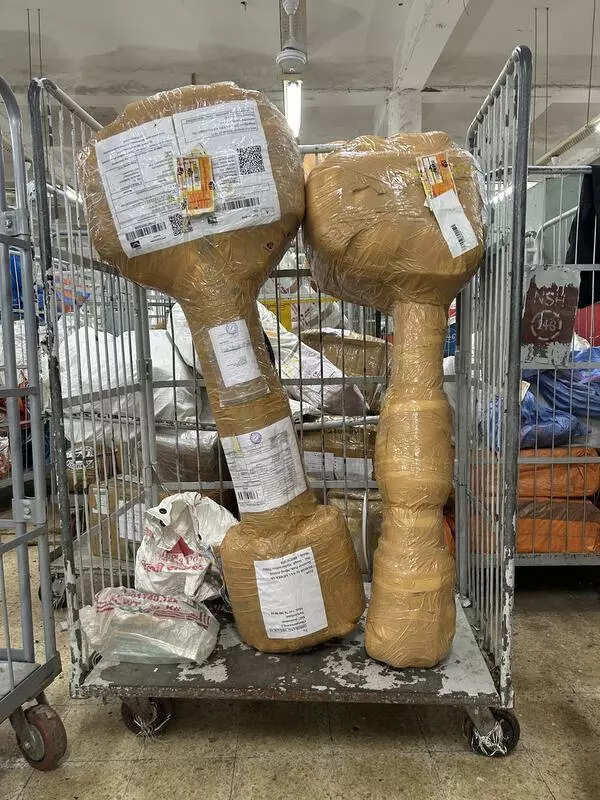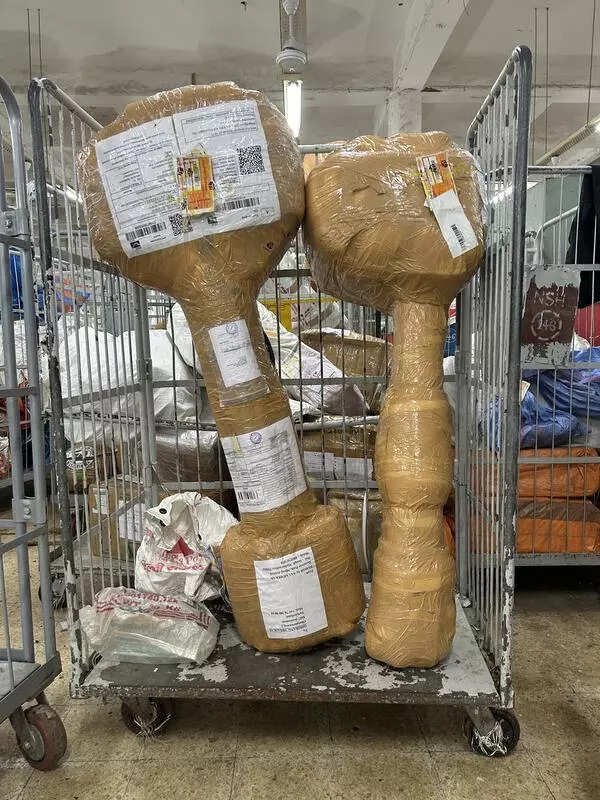Mumbai: Every month, Atik Majid Satarmaker, fourth-generation maker of Indian musical instruments from Miraj, ships about 30 sitars and tanpuras overseas — mostly to US, some to Japan and Italy. But for the last couple of weeks, they have been gathering dust, awaiting clarity on the 50% US tariffs imposed on India.Now, the goods will be on an airplane thanks to India’s postal service whose sometimes dusty persona belies its phenomenal reach. The Universal Postal Union, a special agency of the UN which facilitates international cooperation and coordination of postal services worldwide, could even ensure small exporters using India Post pay only 25% tariff. “Services will resume in about a week,” said Vipul Mandlesha from India Post’s export team. “We are trying to find out if goods via the post can be entirely exempt from tariffs.”The khakhi-clad footsoldiers of India’s circulatory system have been slowly expanding their footprint into overseas exports. A countrywide network of 1,000 Dak Ghar Niryat Kendras (Post Office Export Centres) helps simplify the process for small entrepreneurs and artisan exporters, including uploading documents, getting customs clearance, and even finding efficient packaging material. Besides sitars, among the more unusual things that are routinely shipped out are dhol-drums, shoes and vinyl records from Mumbai, a hub which generates revenues of more than Rs 100 crore per year. The bulk of the shipments are pharmaceuticals, including ayurvedic medicines.Dak Ghar Niryat Kendras were designed for people living in the hinterland because they don’t have access to customs clearance, nor software to print address labels and generate invoices, said Maharashtra’s Chief Postmaster General Amitabh Singh. They are usually attached to the local post office and some are stand-alone offices. There are 80 centres across Maharashtra, the remotest one in Gadchiroli.The main hub in Mumbai, the postal department’s International Business Centre, is located next to the domestic airport terminal, and has tie-ups with a range of commercial airlines.It started in 2018 from a tiny office and has now grown into a vast warehouse as volumes started increasing over the last couple of years after a series of marketing initiatives through export promotion councils. The customer service officers have been trained to handle all kinds of business – from the handicraft entrepreneur sending wooden toy samples to the widow sending homemade sweets to her son. “People often send food items for their children, and we take them in good faith, especially during Diwali season, and they reach via the local post services in the receiving country,” said Mandlesha.While private couriers are cheaper in the metros, they are not very easily accessible in the rural sector. As Satarmaker from Meeraj says, “Our entire export business of string instruments exists thanks to the Indian post department. The private courier companies don’t go with actual weight, they go with volumetric size, taking into account height, length and width, which raises the cost substantially. India Post uses only the packaging weight – which costs Rs 15,000 on average.“The warehouse is also the place where postal imports come into Mumbai. Every package and box is opened because of the volume of banned substances that are sent – from sex toys to narcotics and even electronic items. Marijuana and cocaine are the most common substances that come in. “Sometimes the entire warehouse smells of weed and we all end up passively inhaling it,” said a postal employee with a smile, asking not to be named.










